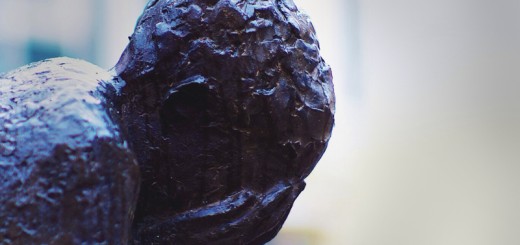That final week: BURIED
Dealing with grief and loss
Most people grieve when they lose something or someone important to them.
The way grief affects you depends on lots of things, including what kind of loss you have suffered, your upbringing, your beliefs or religion, your age, your relationships, and your physical and mental health.
How does grief affect you?
People react in different ways to loss. Anxiety and helplessness often come first. Anger is also common, including feeling angry at someone who has died for “leaving you behind”. Sadness often comes later.
Feelings like these are a natural part of the grieving process. Knowing that they are common may help them seem more normal. NHS Choices
How people reacted to the death of Jesus:
Judas: Judas could not bear to witness what was happening to Jesus. He was the one who’d handed him over and he couldn’t live with what he had done. His remorse was overwhelming him. He couldn’t escape it. He didn’t know what to do with himself.
When Judas, who had betrayed him, saw that Jesus was condemned, he was seized with remorse and returned the thirty pieces of silver to the chief priests and the elders. “I have sinned,” he said, “for I have betrayed innocent blood.”
“What is that to us?” they replied. “That’s your responsibility.”
So Judas threw the money into the temple and left. Then he went away and hanged himself. Matthew 27:3-5
The chief priests picked up the coins and used the money to buy a potter’s field as a burial place for foreigners, just as the prophet Jeremiah had said all those years before.
The centurion:
When the centurion and those with him who were guarding Jesus saw the earthquake and all that had happened, they were terrified, and exclaimed, “Surely he was the Son of God!” Matthew 27:54
Even in his death, in this moment that could have signified the greatest defeat of all, Jesus proved himself to be the Son of God.
This centurion had been standing there in front of Jesus the whole time. he had seen how he died. And he knew that he had witnessed something deeply significant.
He praised God and said, “Surely this was a righteous man.”
All the people who were there: Everyone there knew that this particular crucifixion, this particular death, was different to anything they had ever witnessed before. The whole universe was responding. The foundations of the universe were shaking. Literally. Everything they had ever built their lives upon was shaken to the core.
When all the people who had gathered to witness this sight saw what took place, they beat their breasts and went away. Luke 23:48
An innocent man had been condemned to die in the cruellest and most humiliating way imaginable. Beating your breast is an outward expression of an inner turmoil – that swirling, crazy mix of heartache, suffering, confusion and anger. It’s a public act of lament.
All who knew Jesus:
But all those who knew him, including the women who had followed him from Galilee, stood at a distance, watching these things. Luke 23:49
Watching from a distance. Waiting. Unable to move. Unable to speak. Shocked to the core. Helpless and hopeless. These women had been following Jesus as he travelled from place to place. They’d been caring for his needs and were deeply invested in his life and ministry. They loved him. They had no idea how they would live without him.
Among them were Mary Magdalene, Mary the mother of James and Joseph, and Salome, the mother of Zebedee’s sons.
The Jewish leaders: To them, the death of this radical, subversive teacher was a distasteful necessity. To keep the peace and maintain the status quo, they’d had to silence this guy. Who knows where this teaching of a new kingdom with a new rule might have led? What choice did they have?
But now his death had been achieved, they needed all sight of him removed. They didn’t want people dwelling on this. They needed to move on as quickly as possible. And the next day was due to be the Sabbath – these bodies had to be removed before then.
Because the Jewish leaders did not want the bodies left on the crosses during the Sabbath, they asked Pilate to have the legs broken and the bodies taken down. The soldiers therefore came and broke the legs of the first man who had been crucified with Jesus, and then those of the other. But when they came to Jesus and found that he was already dead, they did not break his legs. Instead, one of the soldiers pierced Jesus’ side with a spear, bringing a sudden flow of blood and water. The man who saw it has given testimony, and his testimony is true. He knows that he tells the truth, and he testifies so that you also may believe. These things happened so that the scripture would be fulfilled: “Not one of his bones will be broken,” and, as another scripture says, “They will look on the one they have pierced.” John 19:31-37
Joseph of Arimathea: This Joseph was a rich man. He’d become a disciple of Jesus. We don’t know how. This is the first time we hear of him. Mark described him as ‘a prominent member of the Council, who was himself waiting for the kingdom of God’. John elaborates further, by saying he was ‘a disciple of Jesus, but secretly because he feared the Jewish leaders’. Joseph had had to watch on as his fellow influential leaders had condemned this innocent man to death. He had been helpless to do anything. He couldn’t stop this death from taking place.
Now there was a man named Joseph, a member of the Council, a good and upright man, who had not consented to their decision and action. Luke 23:50
Now he could do something. Now he could ensure that Jesus’ body was protected and respected. He wanted this special man to receive the special burial he deserved.
Joseph of Arimathea went boldly to Pilate and asked for Jesus’ body. Pilate was surprised to hear that he was already dead. Summoning the centurion, he asked him if Jesus had already died. When he learned from the centurion that it was so, he gave the body to Joseph. So Joseph bought some linen cloth, took down the body, wrapped it in the linen, and placed it in a tomb cut out of rock. Then he rolled a stone against the entrance of the tomb. Mark 15:43-46
Nicodemus: Remember Nicodemus, who’d come to Jesus secretly at night to find out more about the kingdom of God, as recorded in John 3? Well, here he is again. Like Joseph of Arimathea, he’d had to stand by helplessly as his peers sentenced Jesus to this cruel death. All he could do was to make sure that everything was now done correctly for Jesus’ body.
He was accompanied by Nicodemus, the man who earlier had visited Jesus at night. Nicodemus brought a mixture of myrrh and aloes, about seventy-five pounds. Taking Jesus’ body, the two of them wrapped it, with the spices, in strips of linen. This was in accordance with Jewish burial customs. John 19:39-40
Mary Magdalene and the Mary the mother of Joseph: These two women would not let Jesus’ body out of their sight. They were not ready to let go.
They saw where his body was laid. They sat there opposite the tomb and waited. Luke records that they went home and prepared spices and perfumes. They had to do something. This man had meant the world to them. What did they now have left?
The chief priests and the Pharisees: They were still concerned about the influence of this man. He may have been dead, but his influence was lingering. it was not over, they could sense that. They’d heard his stories of rising from the dead. They had to make sure that they had got rid of him once and for all.
“Sir,” they said, “we remember that while he was still alive that deceiver said, ‘After three days I will rise again.’ So give the order for the tomb to be made secure until the third day. Otherwise, his disciples may come and steal the body and tell the people that he has been raised from the dead. This last deception will be worse than the first.”
“Take a guard,” Pilate answered. “Go, make the tomb as secure as you know how.” So they went and made the tomb secure by putting a seal on the stone and posting the guard. Matthew 27:63-66
So that was it. The process of grieving and adjustment had begun. Everyone was dealing with this huge loss in their own way (there is no right and wrong way to grieve). Jesus had been stopped. Silenced. It was finished.
The burial represents the final goodbye. At that point, there is nothing left to do but to start picking up the pieces and learning to live life again. Life will never be the same again, but life goes on nevertheless.
But how do you say goodbye to your reason for living?












